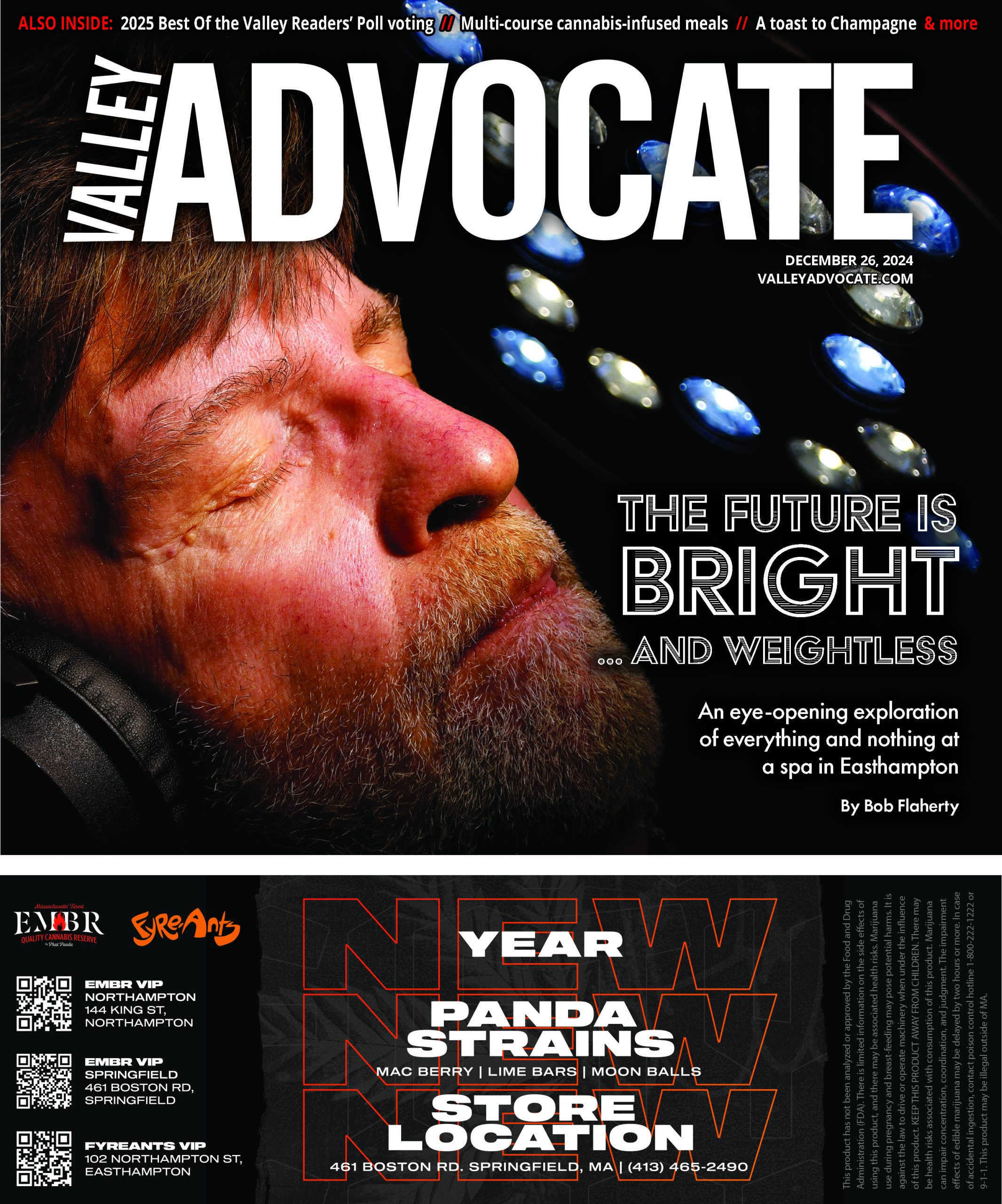There may be no better illustration of how, even in the relatively progressive commonwealth, monied special interests are all but granted exclusive decision-making power over our daily lives than the ongoing battle over the expansion of the Mass. Bottle Bill.
The bill has begun to resemble a ragged, unlucky, now teenaged version of the Schoolhouse Rock mascot, which despite being loved by nearly everybody, has been kicked around legislative foster homes for its entire life, repeatedly consigned to bureaucratic limbo because its aims run contrary to those of established interests. A few legislators in cash-upholstered Beacon Hill offices have short-circuited it by sitting on or chairing key committees through which it must pass, and robotically spewing think-tank-spun talking points about “hidden taxation” and “the burden to small businesses.”
The Updated Massachusetts Bottle Bill (originally H890 in the House, S1650 in the Senate) is a nearly 15-year-old piece of attempted legislation that would do something really, really simple and really, really good: expand the existing deposit requirement on billions of carbonated beverage containers (beer, soda, seltzer and more) to include bottles containing non-carbonated beverages (water, juice, and coffee drinks, among other things). It was originally introduced (and periodically re-introduced) in response to the rapid growth in distribution of non-carbonated beverages in the late 1980s and throughout the 1990s—a reality that essentially re-defined the soft drink market and, many argued, required a policy-based adjustment to the original 1983 legislation to assure its continued efficacy as a recycling incentive.
Massachusetts Sierra Club Director James McCaffrey called the existing Bottle Bill “the most effective recycling incentive program in Massachusetts,” citing studies concluding that “if a bottle is covered by it, it has an 80 percent chance of being recycled. If a bottle is not covered, it is 80 percent likely to wind up in a municipal landfill.”
The Mass. Coalition to Update the Bottle Bill, which includes over 100 environmental and public interest organizations, is at the forefront of the battle to grind the update effort into the political sausage of state law. Over the years, its members have armed themselves with studies and statistics that support their cause. Easing the burden on landfills and reducing the proliferation of litter are two major reasons to update the existing law, and the Coalition claims that “over 1 BILLION containers per year are littered or sent to our rapidly disappearing landfills—enough to overflow Fenway Park!”
According to a 2003 EPA Landfill Waste and Geotechnical Stability Report, PET (polyethylene terephthalate) containers, which make up the vast majority of beverage containers, take up 9.8 cubic yards per ton as opposed to the 2.75-yard per ton needed for “average” landfill materials, making them one of the more space-hogging forms of societal waste.
Nonredeemable bottles also litter our roads and rivers; the Container Recycling Institute (a national nonprofit organization founded in 1991) claims that states that have implemented Bottle Bills have experienced a 70 to 85 percent reduction in litter. Regionally, a 2003 survey by the Mass. Department of Fisheries, Wildlife and Environmental Law Enforcement, conducted during a cleanup of the Charles River, concluded that non-redeemable containers are 9 times more likely to wind up as litter in waterways than deposit containers.
The Coalition catalogues a host of other business-friendly, non-environmentalist reasons to update the bill, pitting industry against industry in hopes of some aid from the proverbial hand of the free market. Since PET is almost purely petroleum, and the use of PET containers is skyrocketing globally, the Coalition argues that efforts to up recycling of the stuff would actually conserve oil. It quotes another CRI study that found that “had the 3.2 billion pounds of wasted PET bottles been recycled in 2002, they would have saved the energy equivalent of 6.2 million barrels of oil.”
CRI also notes that “gains in employment have been shown in nearly every state with deposit systems. In Michigan an additional 4,684 jobs were added to the economy. New York found that 3,800 new jobs were created in that state. Massachusetts and Vermont gained 1,800 and 350 jobs respectively.”
The effort to update the bill, which most Bay Staters see as a common-sense measure based on extensive scientific data, is one of the most popular public policy ideas in Massachusetts history. It has the support of more than 300 business owners, 208 cities and towns, majorities in both the state house and senate, and 77 percent of the public. Governor Deval Patrick has also spoken on several occasions in support of it.
So Why the Holdup?
H890 was originally scheduled to be moved out of committee in March of 2012, nine months after its most recent reincarnation was introduced in July of 2011. Rules require that a bill be moved out of committee in that amount of time, but the committee somehow delayed action on it until June, a move that MassPIRG Executive Director Janet Domenitz points to as the first ominous sign.
“I mean, I know from personal experience that you can get a lot done in nine months,” she says with a hint of snarkiness. “You can, for example, create an entire human being.”
Domenitz, a staunch activist and longtime proponent of the bill, grew more suspicious while trying to develop a “scorecard” that citizens could look at to see who was in favor of the bill. After repeated solicitations from MassPIRG to state legislators to go on record as supporters or opponents of H890 resulted in nearly half of them failing to respond, she grew fearful for its fate, even though those who did go on record appeared to constitute majorities in both the house and senate.
In June, the Joint Committee on Telecommunications, Utilities and Energy, co-chaired by State Rep. John Keenan (D-Salem) and State Sen. Benjamin Dowling (D-Pittsfield, who voted in dissent) once again consigned the bill to “further study,” effectively killing it and eliciting responses like this one from McCaffrey: “The only explanation for what happened on Beacon Hill today is that the corporate special interests are in control. This committee is ignoring the governor, our cities and towns, the public, and a bipartisan majority in both houses who want to actually vote on updating the Bottle Bill. At this point, this is no longer just about the Bottle Bill. It’s about democracy not functioning on Beacon Hill because of a few powerful people.”
Opponents of the updated bill include, primarily, bottlers, supermarkets, food and beverage companies and liquor retailers and distributors, who, granted, would take more of a financial hit than anyone if the legislation were to pass. Re-tooling their operations, they claim, would require significant capital investment in recycling infrastructure and expansion of their labor force to cope with the increased recycling traffic.
Lobbyists for these entities have been throwing money into the gears of progress on the bill for the last decade, bending the ears of key players like House Speaker Robert DeLeo and members of Keenan’s committee, who have taken to calling it “a tax.” Still, the Mass. Coalition maintains its belief that “bearing the cost of a product’s waste should be the responsibility of beverage producers and their consumers, not taxpayers and communities.”
The bill’s primary champion and sponsor, retiring state rep Alice Wolf (D-Cambridge), fought valiantly to find a way to circumvent the bottleneck of the committee and bring it to a full vote before the end of the legislative session July 31. Supporters’ efforts spawned an out-of-left-field tactic in the form of a hurriedly penned amendment to a pending jobs bill, authored by State Senator Robert Hedlund (R-Weymouth).
“We wanted to get it into a bill that was definitely going to move,” says Domenitz.
The amendment survived a voice vote (which doesn’t put senators on record as having voted either way individually) on the larger bill in the Senate, signaling the support of a majority of that body, though it remains unclear if Senate President Therese Murray is an actual supporter.
Unfortunately, the House did not include the amendment in its version of the jobs bill, and a joint conference committee ultimately stripped it out of the final legislation. This time, however, it wasn’t Keenan & Co. who were primarily to blame, but a committee that, among others, included Western Mass. legislators Rep. Joseph Wagner (D-Chicopee) and Sen. Gale Candaras (D-Wilbraham). Neither have been Bottle Bill supporters, and both have taken decidedly pro-big business positions on past issues like casino gambling and the arguably environmentally disastrous HB 4208 (“An act relative to land taking regulations”), which would, opponents claim, essentially eviscerate the state’s Endangered Species Act in favor of property rights and tax revenue. (See “Endangering Species,” July 26, 2012).
Domenitz described supporters’ reaction to the latest bad news as “apoplectic.”
“We should’ve seen this coming, but this really feels seismic to me,” she told the Advocate. “This bill is like, ‘Call central casting.’ It’s a textbook example of the public good versus the special interests. There’s incredible support for this everywhere, and yet this bill apparently keeps getting buried in back rooms; you have to ask yourself, what’s going on in that building?”
“Sadly it’s becoming clearer that big business is dictating how Beacon Hill votes,” McCaffrey lamented on Mass. Sierra’s website after the amendment was canned. “The bottlers and other big beverage interests trumped the people, the environment and the facts on this one.”
In a recent email sent to supporters, Domenitz apologized for not being able to “get this one over the finish line,” and resolved to keep fighting, even though the ball has been kicked down the road at least another six months to the next session of the legislature. “We are looking at all the options, except one: giving up,” her letter went on to say.
Domenitz’s prescription for breaking the legislative gridlock? “Any and all citizen activism,” including running for office. “One of the biggest enemies of the public good is simply a kind of… entropy, I guess you’d call it. Something like 75 percent of these people are running unopposed. How can you expect them to be held accountable?”
To follow the ongoing effort to get the Updated Bottle Bill passed, visit http://www.massbottlebill.org.



